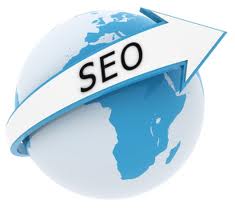Whenever we take a project from travel portals, we always consider about techniques to accomplish good ranking of tourist sites on search engines to attract more visitors and turn them into regular customers. In the course of implementing various techniques, we have identified that high quality content is key to this. Higher ranking of travel portals in Google or other search engines can be attained by content that is professional, reliable, original and authoritative. Content that is typified by right style as well as titles, subtitles & Meta descriptions that are built in a way to engage, interest and motivate customers to act is sure to help a lot in this.

Just increasing reach & attaining global presence is not counted in your success list if you fail to be visible in the local market. Then how to become visible in local market? Well, the answer to this issue is Multilingual SEO. As our professionals are implementing multilingual SEO for a number of travel portals, there is observed a great surge in tourist websites’ ranking. With the right implementation and practices, multilingual SEO can lead travel portals to improved positions on search engines & aid increase their reach on marketplaces that were untouched by taking away language as well as cultural obstructions for potential consumers.
While implementing multilingual SEO strategies it should always be taken into account that deciphering content into just English language is not enough. I know you would disagree with this fact, but it is true that the influence of English has decreased on the Web. According to the number of searches, English is no longer the most famous language. Researches show that above 75% of online users approach sites with non-English content. Almost 98% of online users look for content using their native language or mother-tongue. If you want your travel portal to be visible internationally, multilingual translation is essential.
The Significance of the Right Selection & Localization of Keyword Sets:
People living in different nations can search for the same keyword in different ways. There are a number of reasons for this like economical, cultural, political, and geographical and so on. Owing to this, the approach that we take to each country is unique. It involves the creation of SEO translations & the selection of unique target phrases. While selecting keywords it is of utmost importance to conduct research work with the purpose of comprehending specific keyword sets & phrases used in tourism sector & attaining knowledge concerning different foreign market values over travel portals. A choice of alternative terminology is also essential in this regard.

Localization:
Multilingual SEO interpretation refers to site localization with the aim of achieving the top possible reach in the target language & the best doable ranking on search engines. This is why it identical to SEO copywriting involves the number of words, distribution of keyword density, best keyword selection that should not be same in different languages, & involve the engagement of local speakers who can write content in target language.
In multilingual SEO optimization, the content of each language should be optimized in different ways. First of all test and research the market and then after localize the keywords, descriptions and terms that create direct influence on the overall ranking of the site. As the localization of keywords takes place, we can optimize any site by creating content together with the definite SEO guidelines.
